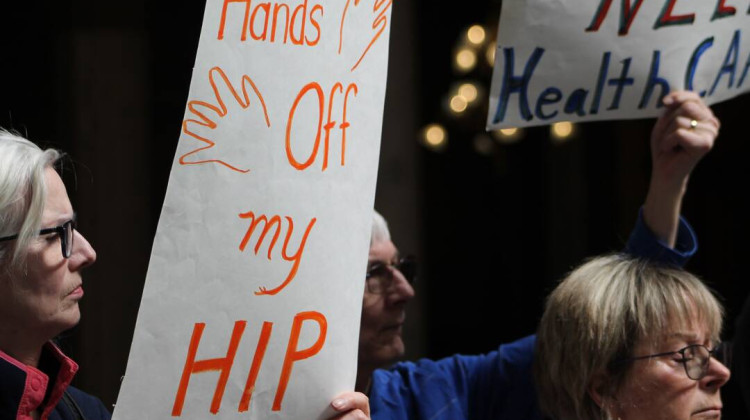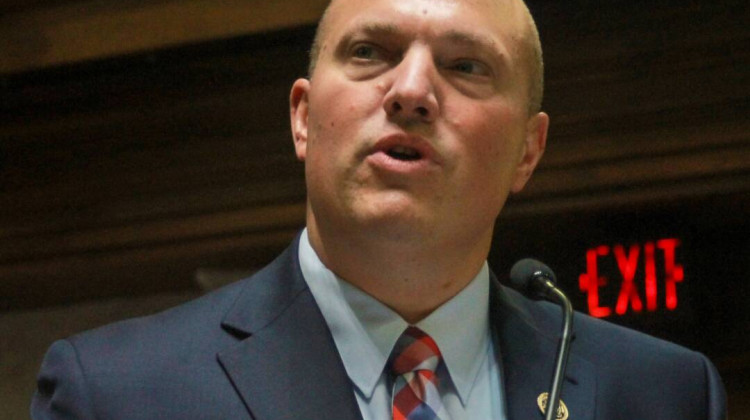
Indiana’s new abortion law bans abortion in almost all cases and does not involve explicit language discussing contraceptives or the morning-after pill.
Pixabay/public domainIndiana’s new law bans abortion in almost all cases and does not involve explicit language discussing contraceptives or the morning-after pill.
Several members of the Indiana Two-Way were curious about how the bill may implicitly affect the availability of contraceptives, particularly IUDs and Plan B.
Jennifer Drobac is a law professor at Indiana University.
She said that language in the law could “conceivably” outlaw certain forms of birth control, including IUDs, that can interfere with the implementation process.
“The problem with all of this is, how is a normal human being, person who's pregnant, supposed to know whether or not they're taking a medication or using a contraception that is actually prohibited – because they honestly think that what they're doing is OK, and, under the law, is not prohibited,” she said.
She added this vague language leaves room for interpretation. Drobac said the law does not go far enough in detailing what is acceptable, leaving contraceptive users potentially vulnerable to accidentally doing something illegal.
“So that's the problem with the Indiana law, is it's dealing in an area of science that is sophisticated, with law that is not sophisticated,” she said.
Another concern, Drobac said, is privacy and how data about contraceptive use may be used or reported.
“If your doctor asks, when was your last period, and you tell your doctor, is your doctor obligated to report that to the government?” she said. “If you've missed one, who's checking? Do they? Who's monitoring if we do not have a right of privacy anymore?”
READ MORE: Why weren’t abortion restrictions decided by a ballot question in Indiana?
Join the conversation and sign up for the Indiana Two-Way. Text "Indiana" to 73224. Your comments and questions in response to our weekly text help us find the answers you need on statewide issues.
Drobac recommended being careful about who you share information with and exercising caution when using period tracking apps.
Ultimately, she said, the ways in which contraceptives could be policed and to what extent are still unclear.
“Try to stay on the right side of the law – but it's just not clear how everybody should be doing that,” Drobac said.
Sen. Susan Glick (R-LaGrange) was the author of SB 1.
During testimony for this bill, Glick emphasized contraceptives and emergency contraceptives like Plan B would not be banned by this bill.
However, the version of the bill signed into law leaves much of this promise up in the air.
The Senate initially passed a version of the bill defining pregnancy as “the female reproductive condition of having a living fetus implanted in her uterus.”
However, the House committee rewrote the bill to remove the definition of pregnancy, and it did not include a new one.
Drobac said there are still so many questions about contraception and how it may be affected. She added this is a particular concern for minors.
“What happens to the Indiana child who is 16?” Drobac said. “The age of consent in Indiana is 16 and the age of consent in other states is as low as 14. And so what happens to that child? Or what happens to a child that is in the custody of the state? And you know, is controlled by Department of Child Services? Is the Indiana attorney general going to allow counties contraceptive care for those children?”
Indiana’s abortion law goes into effect on Sept. 15. It has exceptions for rape and incest before 10 weeks post-fertilization; for fatal fetal abnormalities; and for the life of the mother.
Contact reporter Violet at vcomberwilen@wfyi.org or follow her on Twitter at @ComberWilen.
 DONATE
DONATE






 Support WFYI. We can't do it without you.
Support WFYI. We can't do it without you.